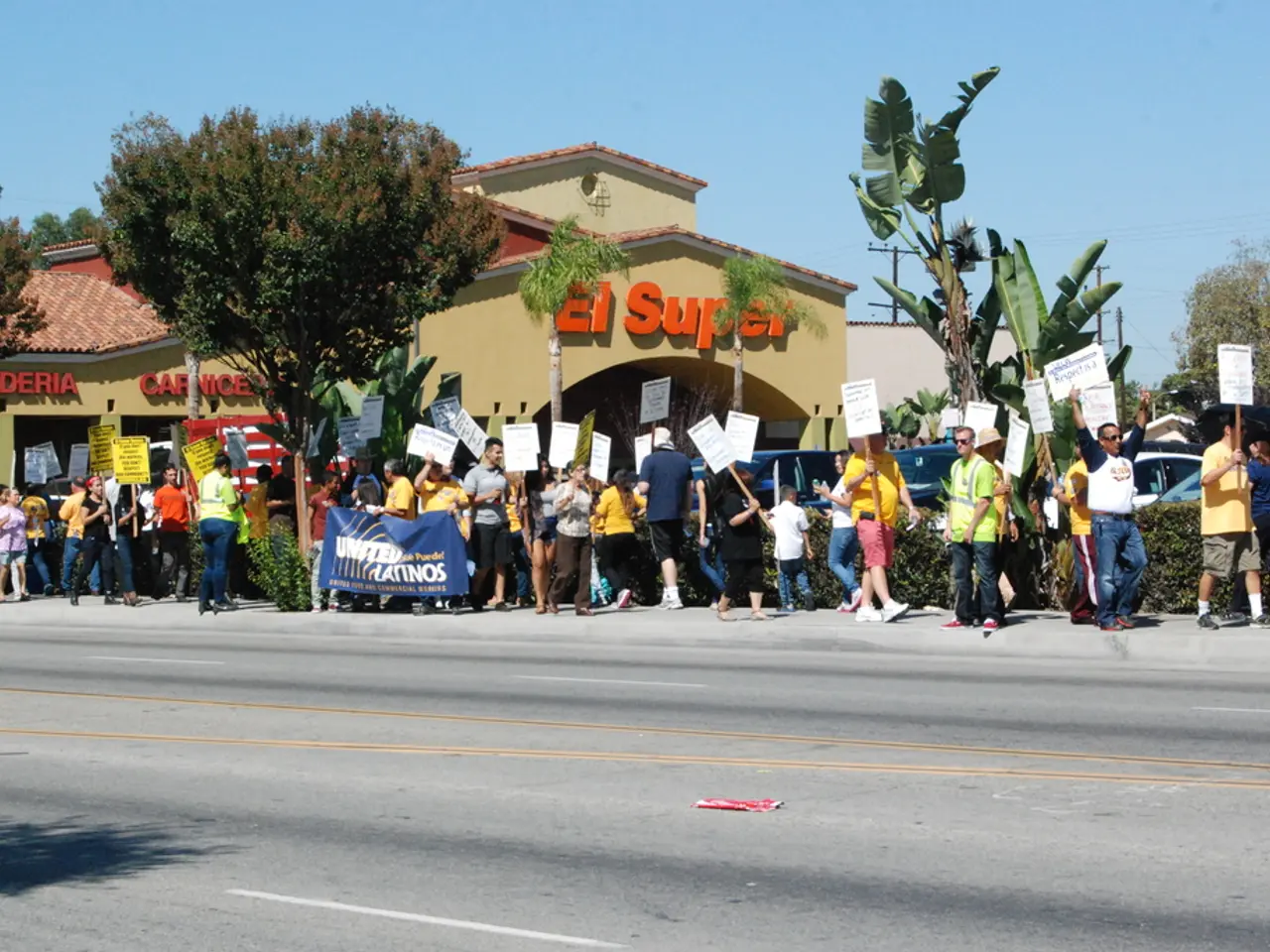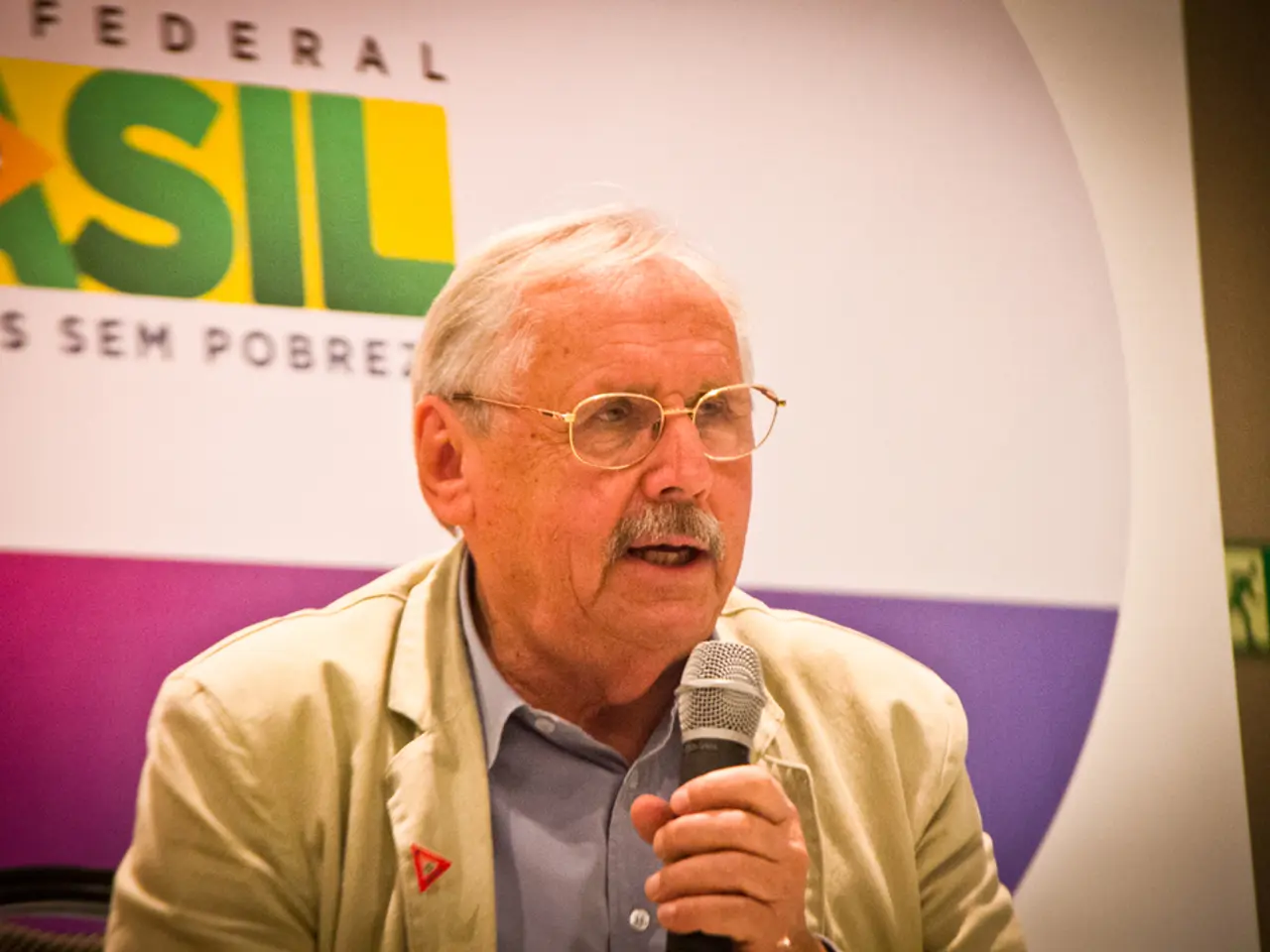Intensifying Conflict in Gaza Amidst Increasing Global Calls for Peace: Key Details Explained
In a move that has sparked widespread concern, Israel's security cabinet has voted to adopt a five-principle plan for ending the ongoing conflict in Gaza [6]. The plan, which aims to disarm Hamas, return hostages, demilitarize the enclave, establish Israeli security control, and set up a new civilian administration, includes a significant first phase: the capture of Gaza City and the expansion of aid distribution [6].
As the deadline for the first phase approaches (October 7), families of hostages in Gaza have warned against expanding the military campaign, fearing for the safety of their loved ones [1]. This warning comes as UN human rights chief Volker Türk has cautioned that a takeover of Gaza City could result in "more massive forced displacement, more killing, more unbearable suffering, senseless destruction, and atrocity crimes" [4].
The plan's execution would involve forcibly displacing up to 800,000 civilians from Gaza City [1], a move that has raised concerns about violations of international humanitarian law. The Israeli Defense Forces (IDF) intend to surround the city for approximately three months before seizing central Gaza refugee camps and clearing all Palestinian armed groups within around five months [1].
Prime Minister Netanyahu has stated that Israel does not plan to govern Gaza long-term but seeks to maintain a "security perimeter" and eventually transfer governance to Arab forces opposed to Hamas [2]. However, this vision faces significant uncertainties, including resistance from Arab nations and the potential for a chaotic power vacuum.
The long-term implications of the plan are far-reaching. A humanitarian catastrophe and displacement of up to a million people could worsen an already severe crisis [1][3][5]. There is also the potential for a prolonged insurgency within Gaza, as Israel assumes a heavy military and humanitarian burden, facing international condemnation and diplomatic isolation [2].
Regional instability could increase if no viable governance is established post-takeover, risking further conflict and complicating peace efforts aligned with the two-State solution [3]. The Israeli military action is also seen by some analysts as politically motivated to bolster Netanyahu’s precarious domestic position amid legal and political challenges [2].
Israel's plan for Gaza does not explicitly mention an occupation, but it envisions Israel eventually taking full "security control" over Gaza, moving Israel closer to full occupation [5]. This concern is heightened by the fact that the plan would mobilize thousands of soldiers already fatigued by months of fighting in the territory [5].
Purely from a military perspective, occupation of the entire enclave is possible, according to a senior researcher at Israel's Institute for National Security Studies [5]. However, an analyst has warned that such an occupation would cost Israel in the long-term.
The Israeli Prime Minister, Benjamin Netanyahu, is going against the wishes of much of the Israeli public and key voices in the military with this plan [2]. Despite this, the IDF Chief of Staff, Lt. Gen. Eyal Zamir, has warned of the danger of worsening the humanitarian crisis in Gaza and the international implications of the escalation [3].
A hunger crisis has taken over the Gaza Strip over the past few weeks as Israel has severely restricted the entry of aid and banned international aid groups from operating there [7]. This crisis, coupled with the potential for displacement and violence, has prompted calls for immediate de-escalation from the United Nations and other global actors [1][2][3][5].
References: 1. Al Jazeera 2. The New York Times 3. Reuters 4. UN OCHA 5. Haaretz 6. Times of Israel 7. The Guardian
- The upcoming capture of Gaza City, as part of Israel's planned intervention in Gaza, has garnered international concern due to its potential to escalate war-and-conflicts in the Middle East.
- As regional politics continue to shape the ongoing situation, the potential implications of displacing up to a million civilians in Gaza and the possible lasting damage to the world's general-news landscape remain a significant cause for alarm.








